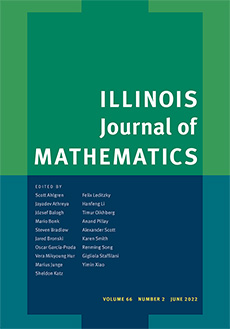Abstract
A model for optimal consumption and investment is posed whose solution is provided by the classical Merton analysis when there is zero transaction cost. A probabilistic argument is developed to identify the loss in value when a proportional transaction cost is introduced. There are two sources of this loss. The first is a loss due to “displacement” that arises because one cannot maintain the optimal portfolio of the zero-transaction-cost problem. The second loss is due to “transaction,” a loss in capital that occurs when one adjusts the portfolio. The first of these increases with increasing tolerance for departure from the optimal portfolio in the zero-transaction-cost problem, while the second decreases with increases in this tolerance. This paper balances the marginal costs of these two effects. The probabilistic analysis provided here complements earlier work on a related model that proceeded from a viscosity solution analysis of the associated Hamilton–Jacobi–Bellman equation.
Citation
Karel Janeček. Steven E. Shreve. "Futures trading with transaction costs." Illinois J. Math. 54 (4) 1239 - 1284, Winter 2010. https://doi.org/10.1215/ijm/1348505528
Information





